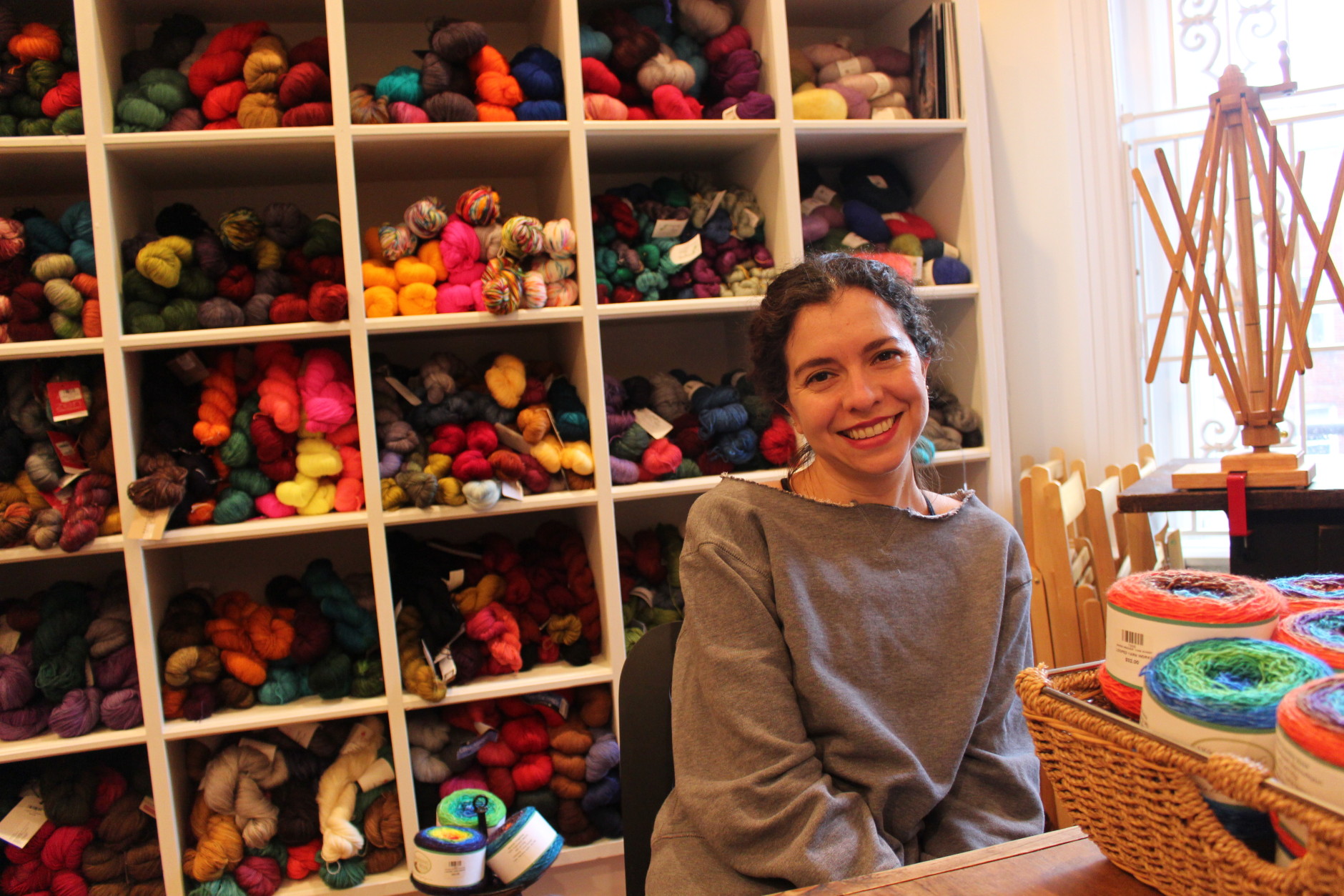
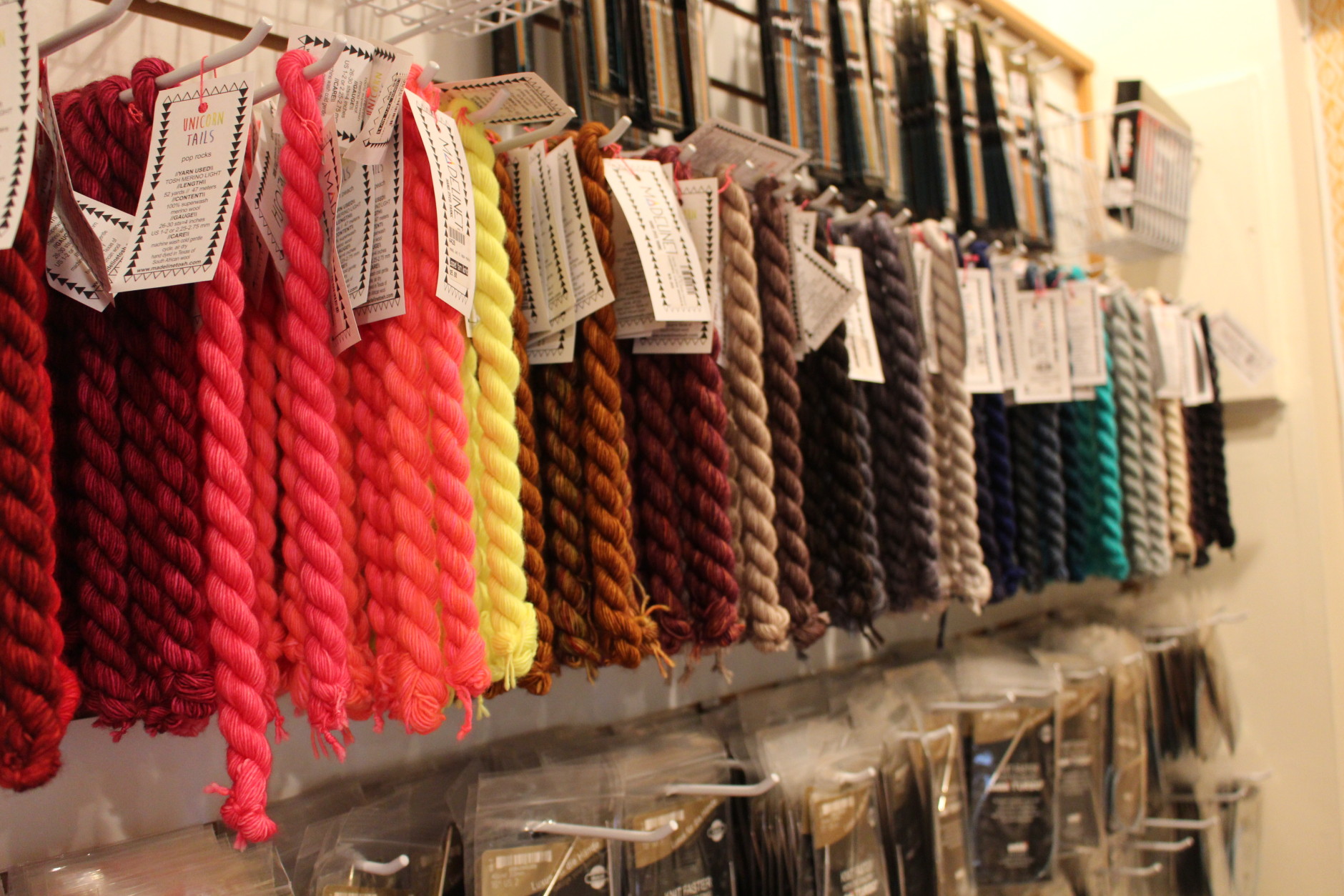
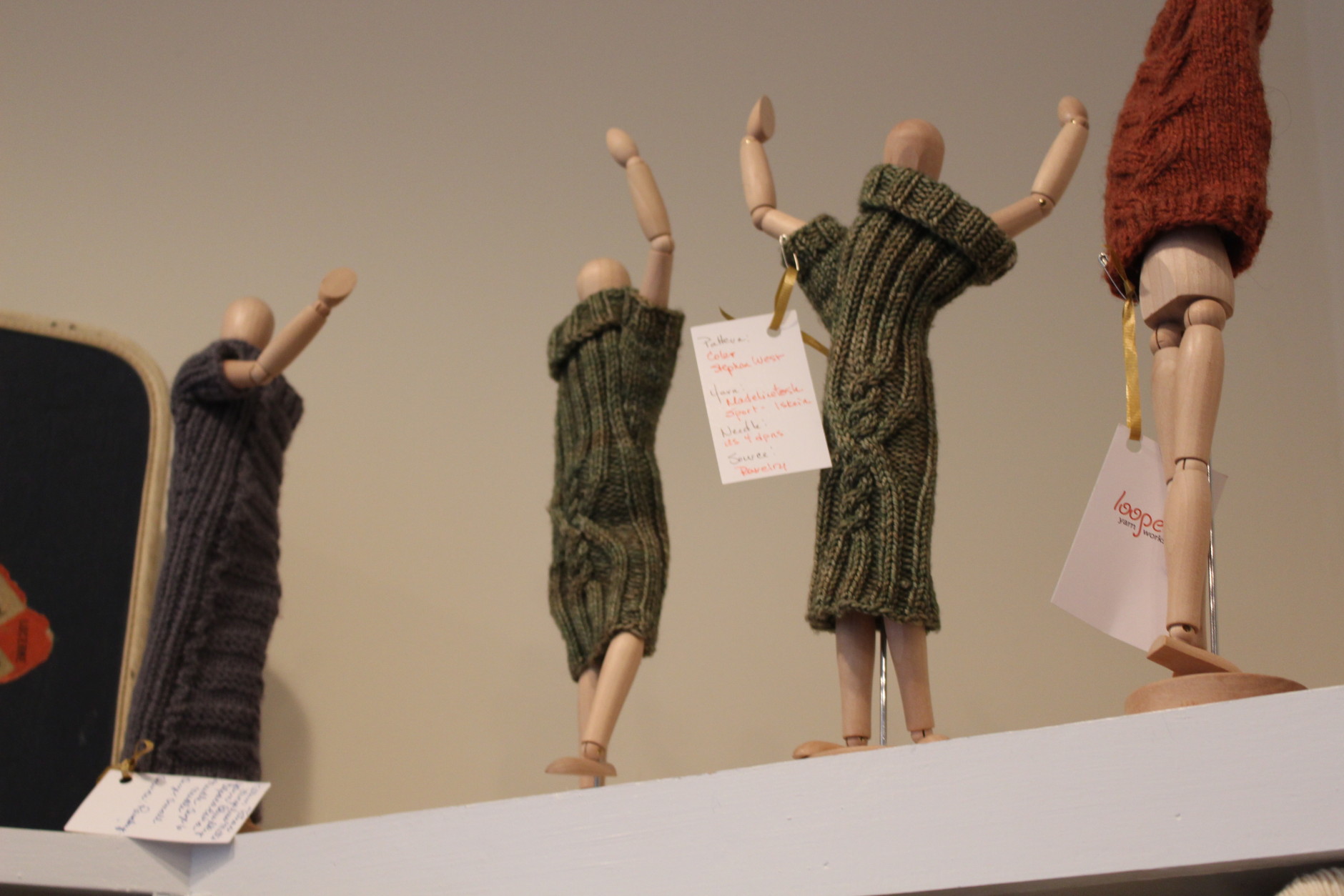
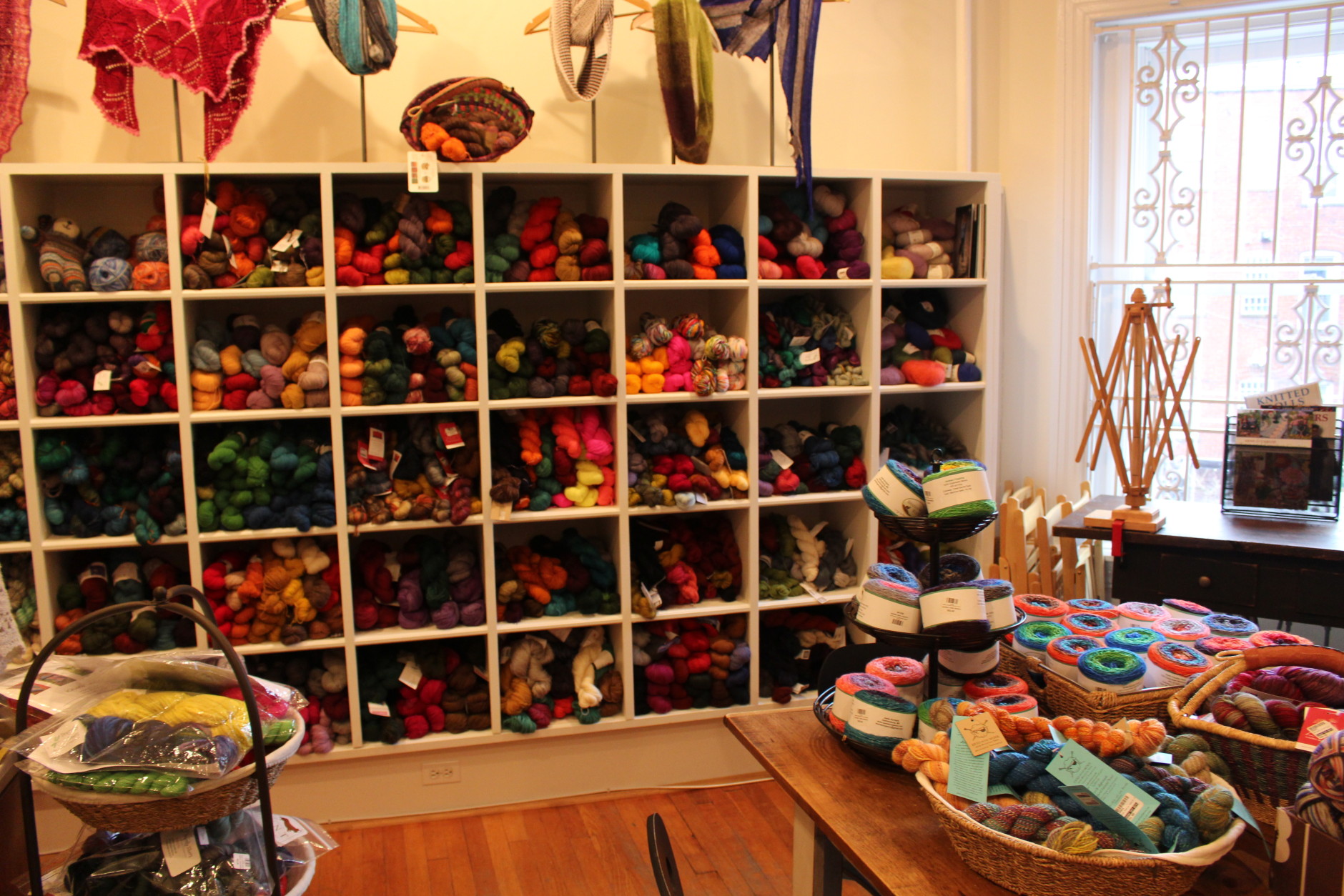
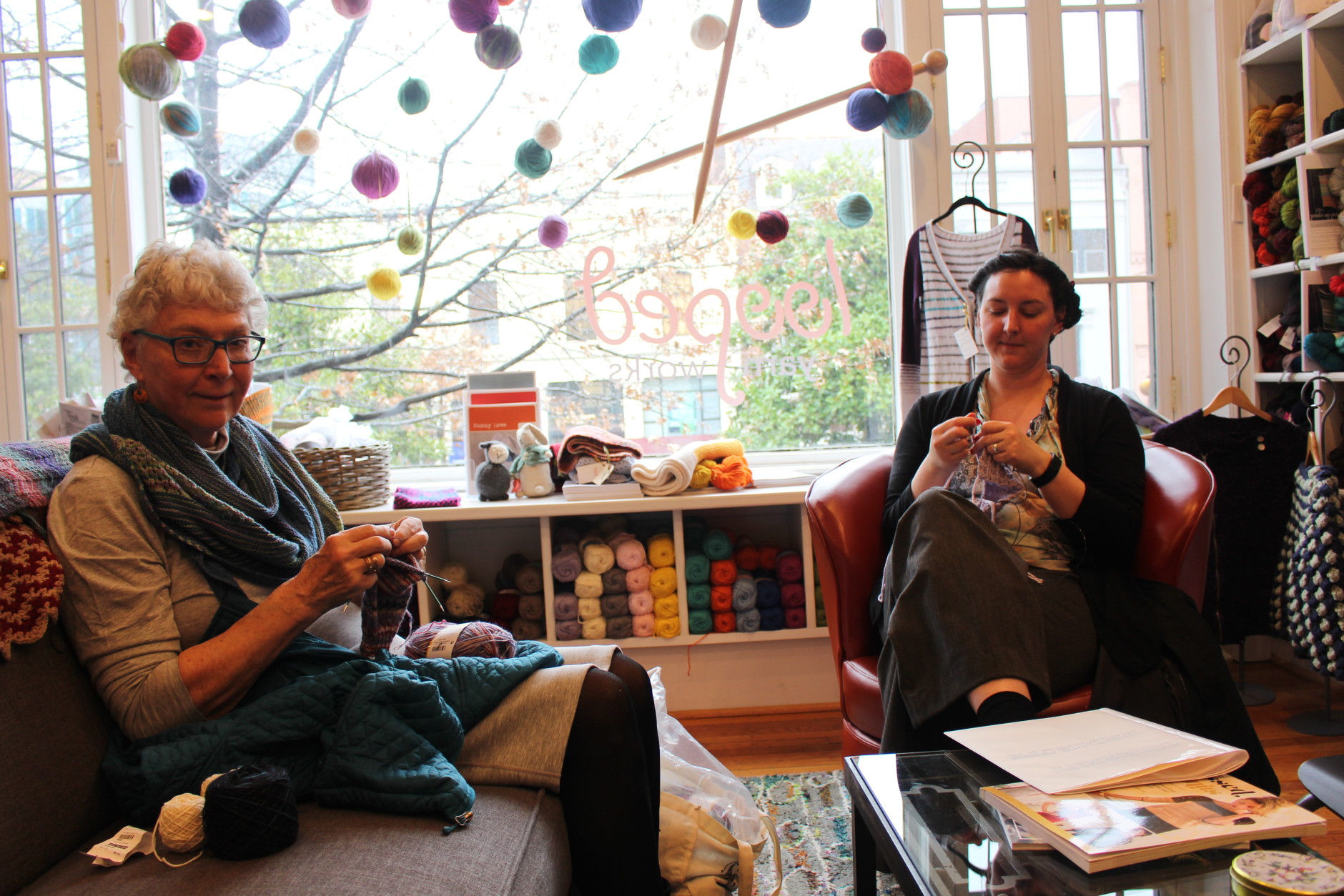
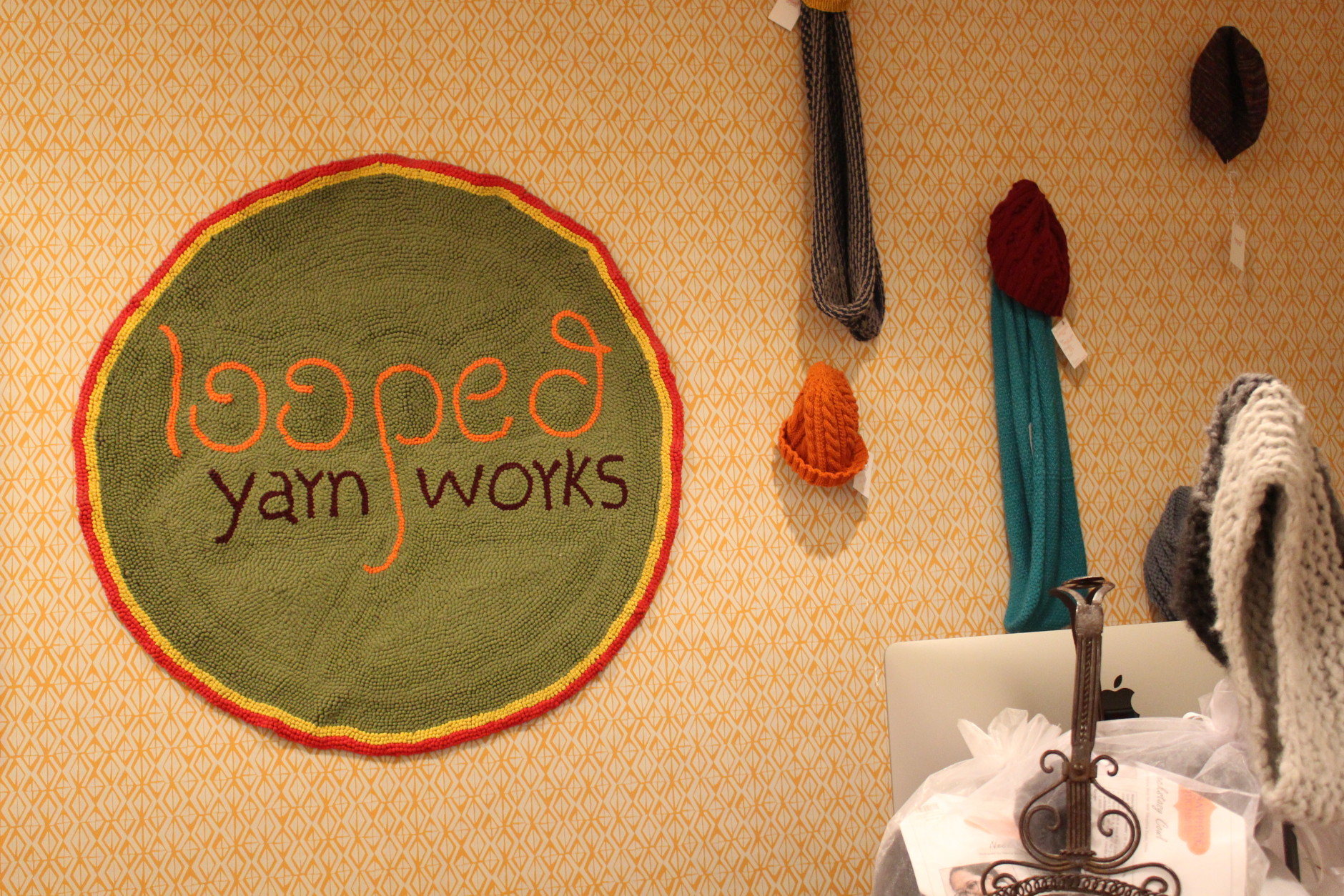
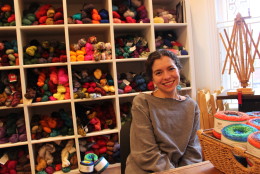
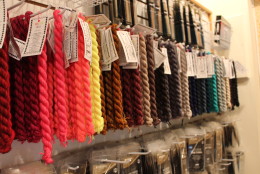
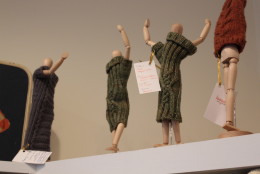
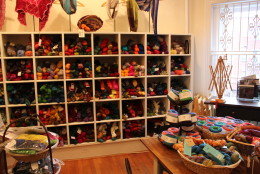
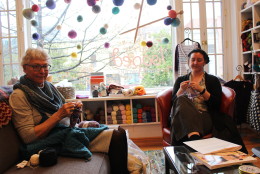
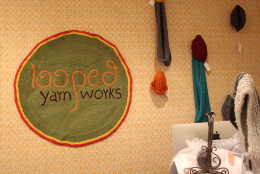
WASHINGTON — Once a favored pastime of aunts and grandmas, it seems knitting has recently gone through a renaissance.
Jessica Boudreau, a co-owner of Looped Yarnworks in Dupont Circle, says she sees people of all ages come through the shop.
“We get everyone from older people, like grandmothers knitting for their grandkids, to college students who buy their supplies to knit Christmas presents so their friends all get fun hats, or to de-stress when they’re doing finals. Or there are people like me, I’m just a mid-thirties girl.”
“There are a lot of knitters, maybe more out there than people realize,” Boudreau says. “Not everybody talks about it.”
What might be keeping young knitters in the supply closet, so to speak? A common misconception, Boudreau says, is that knitwear can’t be fashionable.
“I make it look exactly how I want. It doesn’t have to look ‘Grandma.’ I can go to Anthropologie and see a sweater and say, ‘I’m not buying that, I’m going to make it.’”
No new knitter turns out a perfect cable-knit cardigan on his or her first try. Starting out, Boudreau suggests beginning with the basics, and being realistic about what you’re capable of right out of the gate.
“There are people that will learn to knit, and then they want it to look so perfect from the beginning,” Boudreau says.
“I always say that’s not going to happen, especially when you’re learning. But the other thing is, you’re not a machine, you’re a person. So there are going to be some flaws. There will be some changing. It’s part of the beauty of having a hand-knit item. It’s made by hand. It has those little flaws. It’s not going to be perfect.”
And don’t be afraid to try and try again. That Anthropologie sweater isn’t as far out of reach as you might think.
“I always tell people there’s no such thing as a hard project, it’s just how much effort you want to put into it. Or if you see a sweater and you’re like ‘I just want to make a sweater,’ I tell people to just do it. It might be a little fugly, your first one, but it might be beautiful too. It just depends.”
Practice makes perfect, and incentives help. Boudreau cautions that she’s not a doctor, but she finds some health benefits in the activity. The repetitive action gives the mind something to focus on, and the clicking needles keep restless hands occupied.
“I think it does help you clear your mind, it does help you de-stress, it does help you to relax. My husband will always say ‘I know when you’re really stressed or really high strung because you start knitting a lot more.’”
And for people struggling with bad habits, like smoking or overeating, Boudreau says knitting may help manage cravings.
“It’s probably good for somebody who’s trying to quit smoking. It keeps your hands busy. So if your hands are busy you’re less likely to eat a bunch of snacks, you’re less likely to smoke a cigarette because you’ve got your hands occupied.”
While it may not be the cheapest option, Boudreau says a hand-knit item will bring more joy.
“The nicer yarn you buy, the more expensive it gets,” says Boudreau. “Sometimes it’s more expensive to hand-make a sweater than it is to go buy one. “
But she says the time, effort and the possible price tag are all worth it.
“It’s just nice to wear something that you’ve made. For me, at least, I get a lot of joy out of that. It makes me feel good. Nobody else has it, it’s made to fit me, and I can wear it five times, wish it was a little longer, and rip out the bottom and add some length. I love it because it’s made by me.”






